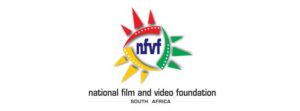The ECOWAS Centre for Renewable Energy and Energy Efficiency (ECREEE) and Konrad-Adenauer-Stiftung (KAS), offers the ECOWAS Research Grant Programme in 2020.
They are inviting research teams to submit proposals for policy research in any of the energy fields (e.g. energy technologies, energy finance, energy economics, energy policy, energy and the environment/climate change, energy and development, energy law etc.)
The Research Grant Program is part of the ECOWAS initiative on Youth Leadership Development in Energy, which works to prepare the region’s young men and women to become globally competitive energy leaders in the future. Aligned with the initiative’s objective, the Research Grant Program aims to build and strengthen the capacity of young West Africans to contribute and participate actively in the energy discourse at the national and regional levels and, thus, ensure that the youth has a say in the way energy development is shaped in West Africa. This aligns with the mission of the Konrad-Adenauer-Stiftung to improve the political and social framework for climate-friendly sustainable development, as well as stronger regional and international cooperation on energy security and climate adaptation/mitigation plans in the countries of Sub-Saharan Africa.
The Program will, thus, support research teams with research proposals that are ambitious and innovative, and aimed at generating new knowledge for decision making.
Worth of Award
- Teams will receive a grant amount of not more than €1500 to contribute to the formulation of evidence-based energy policies or strategies in the region.
- If the paper is accepted for publication, Research Advisors will be paid a sum of €500, separate from the research budget.
- The research papers will be published electronically on the ECOWAS Sustainable Energy Journal and made available on the ECREEE e-library.
- Furthermore, researchers will be given the opportunity to share their findings and recommendations at conferences and workshops organized by ECREEE.
Eligibility
Successful proposals will be selected based on:
- Scientific quality of the proposed research
- Policy relevance
- Competency level of the research team
For Scientific quality, proposals will be judged on:
- Strength of the hypothesis, theories and/or research questions
- Appropriateness of the methodology and research design
- Applicability of the research and its impact.
- Originality and innovation
- Multidisciplinary approach
For policy relevance, the proposals will be evaluated based on its contribution towards solving pressing energy issues.
Specifically,
- Relevance of the research to current or planned policy instruments and legislation.
- Contribution to the body of knowledge in energy policy formulation and competence of decision-makers
The third group of criteria will focus on the ability of the research team to successfully execute the proposed project, considering if the team (or a member of the team) has executed a project of similar scope.
The evaluation will be based on the:
- Qualifications, skills and competencies of the research team
- Feasibility of the research timetable and suitability of the budget
- Participants should at least be students in or graduates from an institution of higher education (in the region or outside the region).
- Research teams with a Master or PhD degree holder, or equivalent, will be given priority.
- Research teams must comprise of young West African researchers of not more than 35 years of age (excluding Research Advisor(s)).
How to Apply
Applications should be submitted electronically to tender@ecreee.org
The following should be sent along with the research proposal:
- A cover letter;
- A supporting letter from an organisation (public or private) interested in the research and that may use the results of research;
- A letter from the Advisor committed to supervise the research;
- Detailed curriculum vitae of each member of the team (including the Advisor).
The research proposal should state:
- Title
- Brief Introduction
- Background and statement of the problem
- Research question or hypothesis, aim and objectives
- Policy relevance (highlighting its significance, applicability and originality)
- Study design (type of study)
- Possible barriers and limitations to the research
- Data collection methods and instruments
- Data analysis methods
- Research period – Timetable for completion of the project, i.e. schedule of activities
- Participants in the study – e.g. stakeholders to be consulted
- Resources required for the study, including budget
- References
- Appendices
Deadline: Applications should be submitted electronically to tender@ecreee.org by June 25, 2020.

